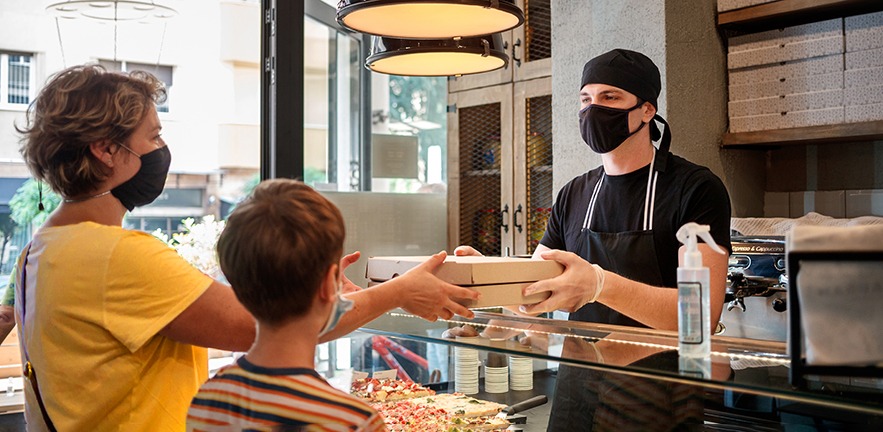Businesses should use the COVID-19 pandemic to pivot to better service rather than making excuses, says Jaideep Prabhu, Professor of Marketing at Cambridge Judge Business School.
By Professor Jaideep Prabhu
The customer is always right, and they are fed up being told they are getting poor service “because of COVID-19”, finds a new report by the UK Institute of Customer Service. Instead, firms should take advantage of the crisis to offer better, creative new ways of doing business.
Businesses have a few options in reacting to black swan events like pandemics or financial crises that are indeed hugely disruptive to supply chains and traditional ways of operating: they can bury their heads in the sand and do nothing, make merely cosmetic changes until the situation returns to “normal”, or use the disruption as an opportunity to find new ways to serve customers that might actually turn out better for everyone in the long run.

In other words, they can either make excuses or they can innovate.
Take the case of restaurants. In the Mill Road area of Cambridge where I live, many dine-in restaurants faced a major disruption in their businesses during the first coronavirus lockdown in March 2020. Unable to serve customers on their premises, many simply closed down for a period of time, while others focused on home delivery.
But one innovative pizzeria went further: they made changes to their operations and store layout in a way that put the customer first. Specifically, they moved their kitchen from the back of the store to the front where customers and passers-by could see the pizza being made in front of their eyes.
This ingenious “pivot” in how the business functioned served several clever purposes: customers, even if they were merely passing by, could smell and see the pizza and would then stop to buy. Others, perhaps concerned by health and hygiene, could be reassured about how their pizza was being made. And with the pandemic in mind, moving back-end operations to the front of the store also made it easy for customers to order, pay and collect from the street without having to go into the restaurant. Or the business would deliver to your doorstep if requested.
It’s perhaps “because of COVID-19” that the pizzeria is today a better place; it’s now a better experience for me as I tuck into my Regina Margherita pizza.
Obviously, not all businesses can respond in such a nimble way. It is always going to be much harder for bigger, more complex businesses to pivot or change their operations overnight. And yet, some larger businesses have emerged well from the pandemic: First Direct, Amazon, John Lewis and Suzuki are among the UK and global companies topping the Institute of Customer Service’s latest table for customer satisfaction, and 17 of the top 20 firms increased their score from July 2020 to July 2021.
It’s not rocket science to satisfy customers: everyone knows when they leave a store or restaurant whether they’ve been treated well or not – and this is reflected in the five factors that comprise the Institute’s scorecard: experience, complaint handling, customer ethos, emotional connection and ethics.
In the end, it all boils down to priorities, and the culture and processes of the business concerned. Most businesses today, and especially those in highly competitive sectors, pay lip service to being customer centric, but few actually prioritise customer centricity enough.
Famed management consultant and author Peter Drucker once wrote: “Because the purpose of business is to create a customer, the business enterprise has two – and only two – basic functions: marketing and innovation. Marketing and innovation produce results; all the rest are costs.”
For the best companies, crises like COVID-19 are a golden opportunity to innovate and improve their products, services, marketing and other vital functions. For the rest, they are just an excuse to make more excuses.


